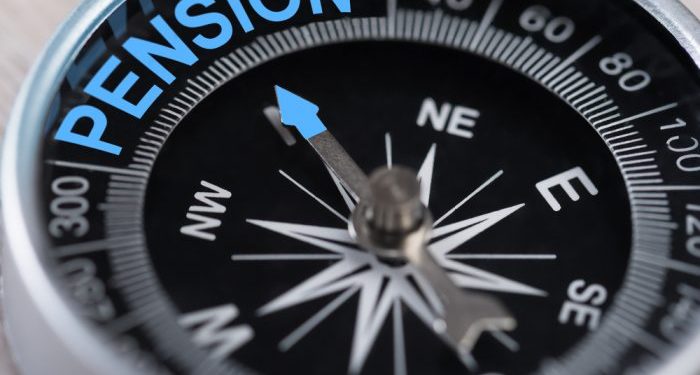The government has committed to supporting measures that will broaden the automatic enrolment policy.
A government review from 2017 recommended expanding automatic enrollment, but since then, no steps have been taken to put those recommendations into practise.
The modifications will now be made thanks to a Private Member’s Bill that the Government today supported.
The main modifications include requiring automatic enrollment of workers at the age of 18 rather than the present 22 and applying the necessary 8 per cent payment to all wages, not only those above a lower earnings threshold.
The Bill will still need to pass the House of Commons and the House of Lords, but with the support of the government, neither of these requirements should present a problem. The precise date that the adjustments will take effect is not yet known.
LCP partner Steve Webb says: “This is truly a landmark day for UK pensions. With pensions policy having been stuck since the 2017 review there was a real risk that the gains from automatic enrolment would be stalled. Now that the Government is backing the necessary legislation the way is cleared for younger workers to be brought in and for lower earners in particular to build up pensions more quickly. The new Minister, Laura Trott, deserves huge credit for her role in unlocking this logjam”.
PLSA director of policy and advocacy Nigel Peaple says: “Automatic enrolment has seen over 10 million people newly saving or saving more for a pension in the UK. This is a genuine success story. Combined with the new State Pension, automatic enrolment ensures that many more people can meet some of the costs of later life.
“As new DWP analysis confirms today, however, some groups are not currently within the scope of the automatic enrolment regime which limits their ability to save effectively, and the level of automatic enrolment saving is low in comparison to workplace pensions of the past. Unless more money is set aside for the purpose of retirement, future generations will find that their incomes will be insufficient to meet their retirement goals.
“The PLSA supports increasing the momentum in automatic enrolment by extending it to workers under age 22 and removing the Lower Earnings Limit (LEL) so that people save from the first pound of earnings. We have also long maintained that in order for savers to reach an adequate income in retirement, further increases should be undertaken over the next decade so that AE rises from an 8 per cent pension contribution today to around 12 per cent in the early 2030s – split 50/50 between employers and employees.
“We are very pleased to support Jonathan Gullis MP’s private member’s bill which will provide the legislative footing to extend automatic enrolment so that a greater number of savers can have an adequate income in retirement.
“The news that the Government, in the form of the Minister for Pensions, Laura Trott, has not opposed the Bill, means these changes are very likely to make it into law at some point over the next year with the result that millions of people will get a better pension when they retire.”
Hymans Robertson partner Michael Ambery says: “We welcome any attempts to lower the age threshold for auto-enrolment and extend the number of individuals who will be eligible. We strongly believe that increasing the availability of pensions to all is key to eradicating future pensioner poverty, and fully support the Private Members Bill. As an industry, we would welcome any attempts to encourage employers to review their pension provision and accessibility to increase inclusion.
“Whilst todays reading is a step in the right direction, a sea-change is needed. We would like to see no restrictions by way of earnings for contribution (i.e. from first pound without upper limit), AE being open to everyone whether in employment or self-employed (including ‘gig’ economies) as well as the removal of any upper age limit. A review on minimum levels of contribution from the 8 per cent, supported by the work of the PLSA, is key to this and we look forward to hearing from the Pensions Minister, and government in due course.”
Aegon head of pensions Kate Smith says: “It’s fantastic news that the Government has confirmed its support for enhancements to auto-enrolment, originally put forward back in 2017. The next step is to agree a timetable for implementing these enhancements. With the next General Election to take place not later than January 2025, we urge the Government to start phasing this in from April 2024.
“Basing contributions from the first £ of earnings rather than on a band above £6240 will mean contributions from both individuals and employers increase. Employees pay 5 per cnet so this equates to £312 a year, but after tax relief, this is just over £20 a month. But with employer contributions, this will be boosted to £499 a year extra. To avoid an overnight change, it will be important to introduce this gradually over a number of years, particularly as we emerge from the current cost of living crisis. Otherwise, someone earning £12,480 would see their contributions double overnight.
“It is also hugely welcome that those aged between 18 and 22 will in future be auto-enrolled. This will get younger employees into the pension savings habit earlier, and won’t ‘miss’ it from their pay. And it’s the contributions paid in the earliest years that have longer to grow with investment returns.”
The post Government backs Private Member’s Bill on automatic enrolment reform appeared first on Corporate Adviser.



